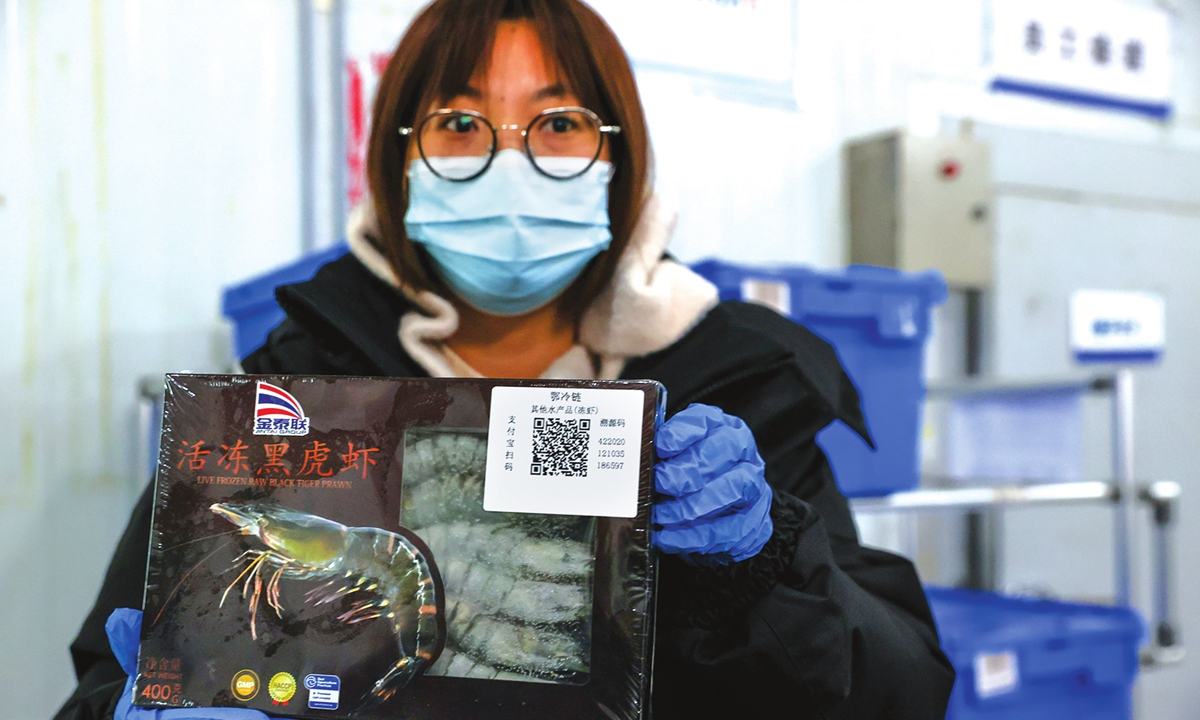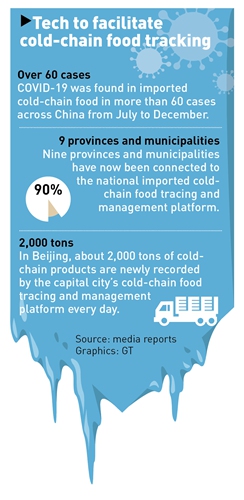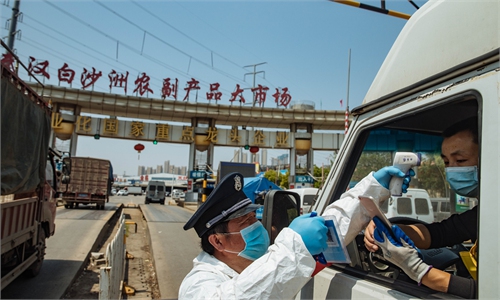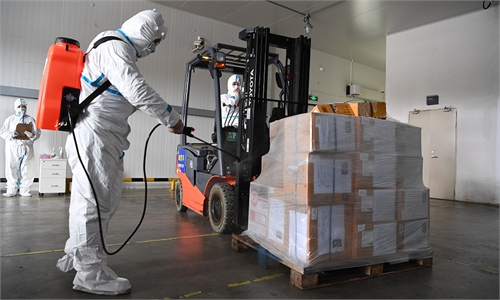SOURCE / INDUSTRIES
More Chinese cities require real name for buying frozen or chilled food

A supermarket salesperson puts a QR code on a box of black tiger shrimps imported from Thailand on Thursday in Wuhan, Central China's Hubei Province. This was the first code generated in the province's tracking platform for imported cold-chain food, a system to guarantee traceability of such food in case of coronavirus contamination. Photo: cnsphoto
Central China's Henan Province issued an emergency notice on Wednesday, requiring consumers register their names when purchase imported chilled or frozen food. It's the latest move among a slew of cities across the country in taking strict measures to prevent cross-border spread of coronavirus via cold-chain storage.
All imported cold-chain food producers and marketers in the province are required to upload information including sources, proof of nucleic acid test results and flows of imported frozen food such as meat and marine products by January 5, 2021, and tracing codes will also be generated, according to the notice released by the Administration of Market Regulation of Henan Province.
Starting from January 6, imported frozen foods without the tracing code are banned from sale across the province, according to the notice.
Meanwhile, the new measures require that food producers and marketers should post the tracing code on the outer packaging or counters for consumers to use Tencent's social platform WeChat or Alibaba's Alipay to scan and upload their information including name, address and phone number.
Henan's measures came after Hefei, located in East China's Anhui Province, announced on December 7 real-name purchases for imported cold-chain food together with strict disinfection and multiple certification requirements.

Recently, sporadic infections have been reported across the country, many linked to imported frozen meat and marine products or imported cases. On Tuesday, the General Administration of China said to suspend import application from two of Russia's fishing vessels for a week, as a sample of the outer packaging of their products was tested positive for the COVID-19.
A Beijing-based frozen food importer, who refused to be named, told the Global Times that the release of a tracing platform is expected to restore normal sales of imported cold-chain food. "However, we hope every region can recognize each other's tracing code so that importers don't have to upload information repeatedly," he said.
Lu Zhenwang, founder of Shanghai Wanqing Commerce Consulting, told the Global Times on Wednesday that local authorities should come up with a set of rules that effectively protect users' data while ensuring safety and encourage sales.
Currently, Chinese tech firms are in a race to create solutions to help with tracking problematic imported cold-chain foods. Alibaba Cloud launched a self-developed tracking system on December 10, which provides information including the record of cold food storage, the main body of the cold chain, the inflow and outflow of cold-chain foods.



